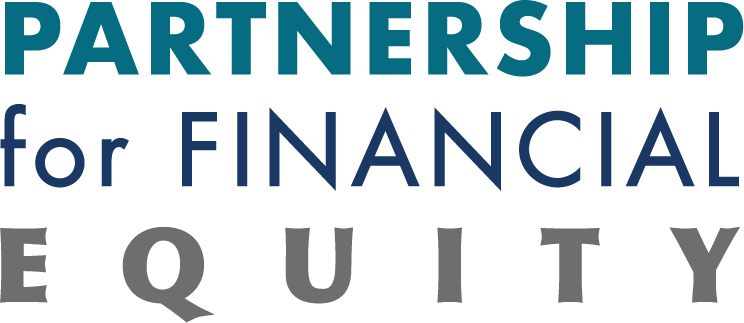January 2020- Mortgage Lending Roundtable Recap
February 24, 2020
On January 23rd MCBC hosted the first Mortgage Lending Roundtable of 2020. MCBC kicked off a four-part series on down payment assistance (DPA) programs.
Roundtable attendees included representatives from Mass Bankers Association, CHAPA, National Consumer Law Center, area banks, realtors, and community organizations.
Jim Wilde, Executive Director of the Merrimack Valley Housing Partnership (MVHP), shared the results of a survey on municipal DPA programs in the Commonwealth. Overall, MVHP determined:
- 4% of Massachusetts residents live in an area covered by a DPA program.
- 32 DPA programs cover 67 (19.1%) of the Commonwealth’s 351 cities and towns.[1]
- The programs provide assistance to roughly 432 people annually.
- A number of cities and town did not exhaust their allocation of funding last year.
- Assistance amounts, asset caps, and debt ratios vary considerably amongst programs.
- Roughly half of the programs allow housing quality issues to be resolved post-closing.
- Some DPA program administers or lenders advance funds at closing and get reimbursed 2-3 weeks post-closing.
- Federal and state sources – most commonly HUD’s HOME and Community Development Block Grant (CDGB) programs and the State’s Community Preservation Act – funded programs administered by a municipality or a third-party nonprofit organization
Observations and possible action steps discussed included:
Short-term |
Long-term |
Keep MVHP’s information current & accessible |
Develop a centralized DPA program clearinghouse |
| The Roundtable agreed the work undertaken by MVHP should be kept current and shared amongst industry stakeholders. Attendees encouraged MVHP to consider the charitable activities of Mass Bankers and/or the Mass Mortgage Bankers Association as means to fund research efforts and keep the information current. | A centralized DPA program clearinghouse could help increase the efficiency of municipal programs and encourage DPA program participation by other cities and towns. A trusted third-party working at scale with the ability to close within a 45-day window and guarantee funds could significantly simplify the process for borrowers and lenders. |
Overcome DPA program discouragement |
Develop a consumer- and lender-friendly DPA online search tool |
| Educate homebuyers about DPA programs –get to them first, before they can be dissuaded by lenders or realtors. Screen first-time homebuyers for DPA programs as part of the homebuying class curriculum. Educate realtors on DPA programs in their markets; note that some DPA program administers can advance funds at closing and get reimbursed 2-3 weeks post-closing. | MHP maintains a list of DPA programs on its website organized by geography. CHAPA, MassHousing and MHP are working to migrate and expand the current MyMassMortgage.com website.
Attendees agreed it is a best-practice to organize DPA program information by locality so that consumers can match programs with geographic interests. Providing current information on program allocations and characteristics was encouraged. Ideally, consumers could complete a financial profile and the online directory would qualify them for DPA programs in towns or cities where funding was available. “Empower the consumer” was a common refrain on this topic. |
MassHousing and the Federal Home Loan Bank DPA program results |
Resolve housing quality standard requirements |
| See discussion below. | HUD’s housing quality standards require repairs to be resolved prior to closing. Too often the requirements can’t be resolved. In 2019, MVHP reported at least 10 closings didn’t move forward due to $2-$4k of repairs. Local sponsorships, philanthropic or CPA funds could be utilized to help fund pre-closing repairs. |
MCBC inquired into 2019 DAP program results for MassHousing and the Federal Home Loan Bank.
At the end of last year, MassHousing announced the expansion of its DPA program. DPA programs can be used by borrowers with higher incomes and for the purchase of multi-family properties. The maximum size of a DPA loan increased to $15,000 or 5% of the purchase price.
According to MassHousing’s press release, MassHousing Executive Director Chrystal Kornegay noted “DPA has been a powerful tool in addressing the state’s racial homeownership gap, and this program expansion will further enhance MassHousing’s ability to make sustainable homeownership possible for families across Massachusetts.”
In the press release, it was reported that since the program’s inception in March 2018, DPA has helped 1,877 households attain homeownership. The 1,877 loans represent $13.8 million in down payment financing (an average of $7,350 of assistance per household). One-third of MassHousing’s DPA loans were used by homeowners of color – a rate the press release notes is more than twice the statewide average for minority home purchase lending.
MCBC Board Member and Mortgage Lending Committee Co-Chair Gonzalo Puigbo, CRA Officer at People’s United Bank reached out the Federal Home Loan Bank and asked them to share the results of its DPA programs in 2019.
Join us for the next Mortgage Lending Roundtable on March 3rd to continue the conversation. We’ll be joined by MassHousing and the Federal Home Loan Bank of Boston to hear more about their programs and how lenders can get ready for the spring market!
Roundtables are to encourage industry professionals to network and discuss CRA-related topics. These sessions are designed to encourage an informal and collegial exchange of ideas and insights. Each roundtable is facilitated by MCBC’s leadership as well as attendees who volunteer to guide discussions and share their expertise. Membership in MCBC is encouraged to help sustain our efforts, but is not a requirement to attend roundtable meetings. Come check us out!
Download these meeting minutes here..
[1] MVHP received information from 31 of the 32 programs.

